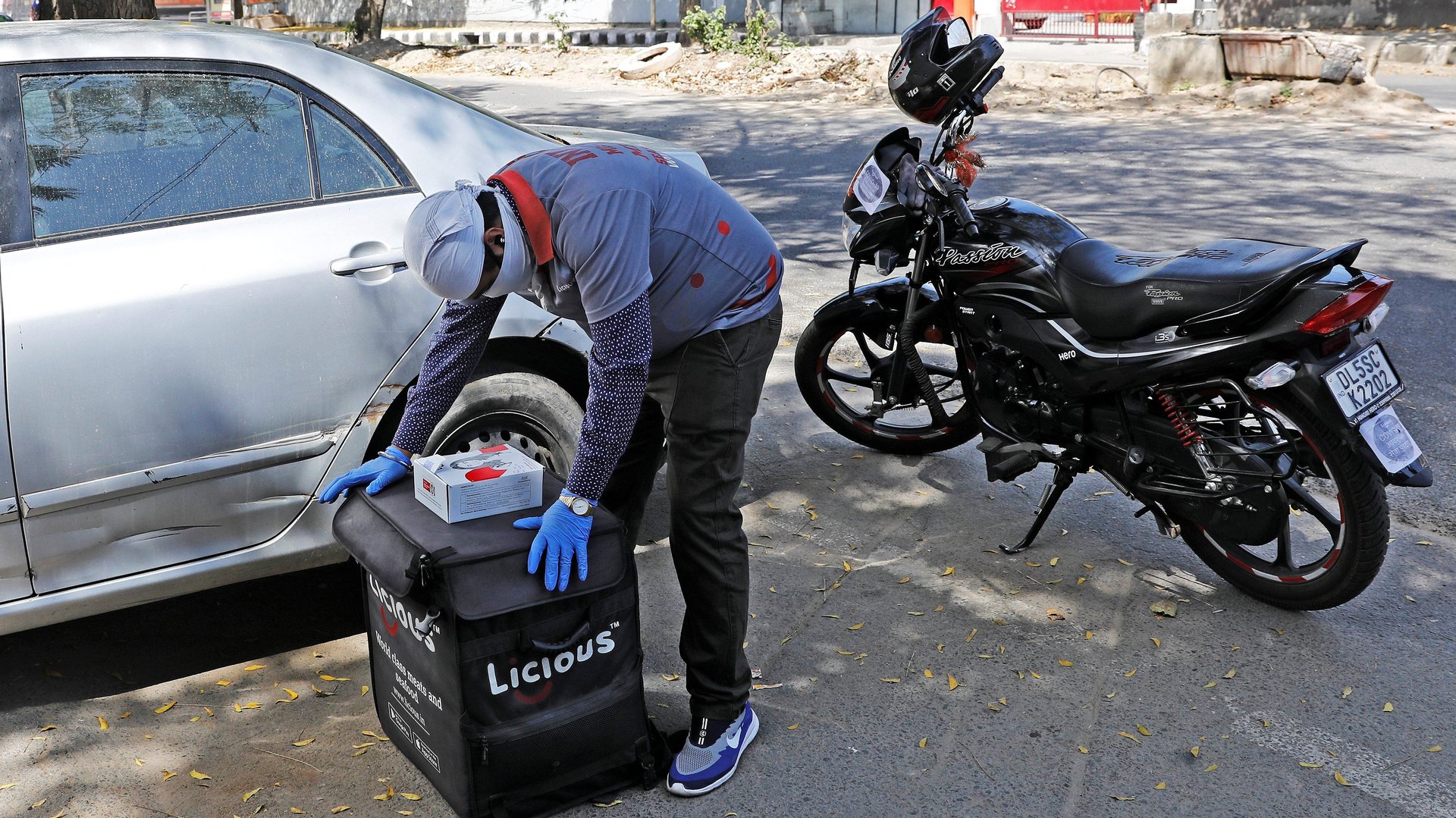Coronavirus lockdown has exposed the serious flaws of India’s gig economy
The coronavirus outbreak has brought attention to serious flaws with India’s widely-celebrated gig economy.


The coronavirus outbreak has brought attention to serious flaws with India’s widely-celebrated gig economy.
Gig work, which entails working as a freelancer or on short-term contracts as opposed to permanent employment, has been touted as the future of work for the flexibility and cost benefits it offers. But on March 25, when India announced a nationwide lockdown to stop the spread of Covid-19, thousands of temporary workers and daily wagers fled from cities overnight to unite with their families in villages, leaving companies that have built their businesses around gig work in limbo.
“The single biggest issue that hit us hard was people,” Hari Menon, co-founder and CEO of one of India’s largest online grocery delivery firm BigBasket, said last week. “A lot of our workforce is migrant. They crossed the border and even as of today they cannot come back.”
So far, India’s gig economy has been praised for creating millions of jobs for blue-collar workers in delivery and driving, among other sectors. India is the fifth-largest country for flexi-staffing after the US, China, Brazil, and Japan. Prior to the pandemic, India’s gig economy was on track to be worth $455 billion by 2023.
But after the latest example, companies may need to consider models that provide more predictability and dependability. “It does raise interesting questions about if the model of gig economy works,” Sahil Barua, co-founder of logistics firm Delhivery, said during a webinar last week.
For now, companies are trying all sorts of experiments to salvage the current situation.
Band-aid solutions
Meat delivery company Licious lost almost half of its 500 delivery staff immediately after the lockdown was announced. To salvage the situation, the company checked-in its remaining workers into hotels. These executives then referred others, helping Licious bring its total headcount to 800, co-founder Vivek Gupta said. The company also began working with third-party delivery service providers like Yulu and Shadowfax, among others, to fulfill orders.
Other companies, too, relied on collaborations. BigBasket, for instance, forged 57 partnerships with restaurant associations, retail associations, garment factories, and even ride-hailing firm Uber, to ramp up hiring. Still, the demand that the company was witnessing was five or six-fold greater than the delivery agents reporting to work, which meant many customers still went disappointed.
But none of these is a long-term fix.
“You will dry up with the number of people you can get from within a city,” said Menon of BigBasket, adding that BigBasket wants to hire 10,000 more people on the ground but the pool is limited. “Until and unless borders open for migrant workers to come back and work, it will hold us back from getting new products SKUs (stock-keeping units) and scaling…even if the borders open up in a restricted, controlled manner, it will help us a lot.”
A do-over gig
While gig failed, the traditional full-time hiring model worked for companies that have stuck to it.
For instance, Gurugram-based Delhivery continued to run its business pretty smoothly as all its executives are full-time employees with guaranteed pay, insurance, as well as provident funds taken care of.
Still, Delhivery’s Barua said it may not be in the best interest of every company to build out their own delivery networks across the country. Instead, they could outsource. “Just because you can ship orders doesn’t mean you can scale up,” Barua warned. “Thinking you can develop large-scale, pan-India network may not be the best use of capital.”
Save the gig
If the gig economy in India has to survive in the long-run, it will need to revamp significantly.
Simply onboarding unskilled workers and putting them on the job with a week’s training will not sustain companies as they grow and expand, experts say. “There needs to be a change in underlying labour models,” said Delhivery’s Barua. “There has to be a much greater focus on benefits provided to people who are out there and delivering at the last mile, staff in warehouses and trucking terminals.”
Both governments and companies must think of extending benefits like healthcare, sick leaves, vacation days, and stable pay to gig workers.